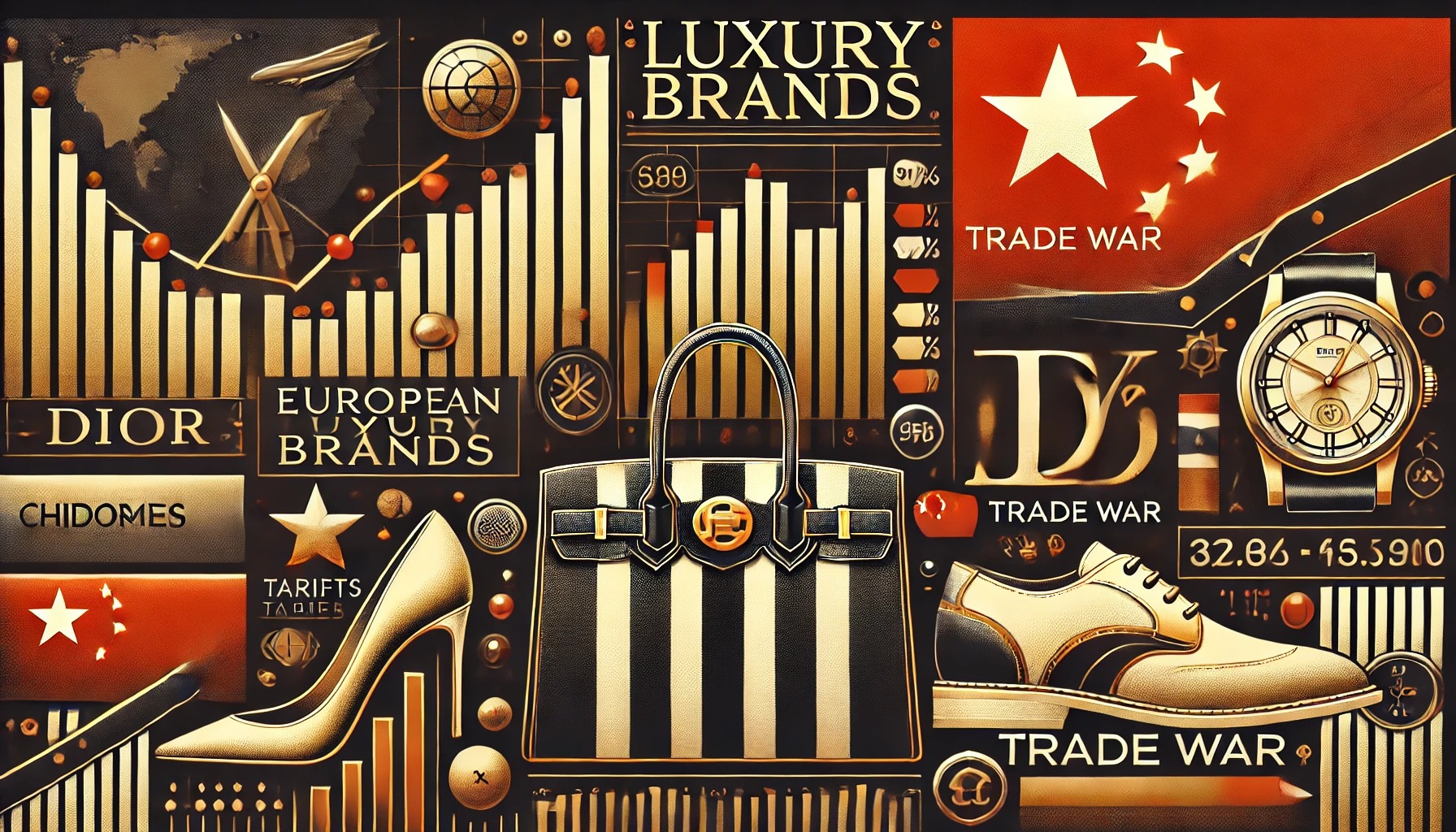European luxury shares have seen a significant drop, driven by investor fears that iconic brands such as Hermes handbags and Dior shoes might become the next casualties in the ongoing China-EU trade conflict. These concerns arose after the European Union imposed tariffs on Chinese electric vehicles (EVs), prompting speculation about how Beijing will respond. However, experts suggest that luxury goods may not be Beijing's next focus.
Beijing's Response to EU EV Tariffs: Luxury Goods Unlikely Target
According to Patrice Nordey, CEO of Shanghai-based innovation consultancy Trajectry, while escalation is expected, luxury goods are not likely to be targeted. "It's a question of how Beijing will respond to the EV tariffs. Is there going to be an escalation? I think yes. Is it going to go after luxury goods? I don't think so," Nordey stated.
China has so far targeted sectors like brandy, pork, and dairy, major industries in France—a country that led the push for tariffs on Chinese-made EVs. Following the announcement that Beijing imposed temporary anti-dumping measures on brandy imports, European luxury shares, including LVMH (owners of Hennessy cognac), Hermes, Kering, and Burberry, dropped between 2% and 6%.
China's Policy on Luxury Goods: Favorable Despite Tensions
Despite these concerns, experts argue that targeting luxury goods would go against China's favorable policies toward the sector. Jacques Roizen, managing director at Digital Luxury Group, pointed out that Beijing has long encouraged domestic luxury spending to keep consumers from shopping overseas.
"Hainan is a prime example, developed into a major duty-free hub because policymakers understand that luxury spending in China benefits the country," Roizen explained. He added that any move to raise prices on luxury brands in China would likely drive consumers to shop abroad, counteracting the government's goals of boosting domestic luxury sales.
China's Luxury Market: A Global Powerhouse
The Chinese luxury market is forecasted to account for 25% of the global total this year, despite a recent slowdown, according to Jelena Sokolova, senior equity analyst at Morningstar. This explains why European luxury shares are so sensitive to any developments in China. Even the threat of tariffs or increased consumption taxes on luxury imports would significantly affect French luxury conglomerates.
France's brandy exports to China, which amounted to $1.7 billion last year, account for nearly 99% of China's total brandy imports. Furthermore, 11 billion euros worth of European luxury goods were imported into China in the same year. Given the size of this market, analysts believe it's less likely Beijing will target luxury brands in retaliation.
Avoiding a Full-Scale Trade War
Albert Hu, professor of economics at the China Europe International Business School, emphasized that neither China nor the EU wants a full-scale trade war. "I think at this point, neither the EU nor China wants a trade war that would hurt both economies," Hu said, noting China's cautious approach in selecting retaliatory measures.
Luxury goods, due to their high price points and unique nature, are also not easily targeted by anti-dumping claims. "It's hard, logically, to justify dumping claims on $2,000 handbags," Sokolova added.
As the trade tensions between China and the EU continue, investors remain on edge, but experts suggest that luxury goods may not be directly impacted—at least not in the immediate future.



 Dow Hits 50,000 as U.S. Stocks Stage Strong Rebound Amid AI Volatility
Dow Hits 50,000 as U.S. Stocks Stage Strong Rebound Amid AI Volatility  South Korea Assures U.S. on Trade Deal Commitments Amid Tariff Concerns
South Korea Assures U.S. on Trade Deal Commitments Amid Tariff Concerns  Trump Signs Executive Order Threatening 25% Tariffs on Countries Trading With Iran
Trump Signs Executive Order Threatening 25% Tariffs on Countries Trading With Iran  Australia’s December Trade Surplus Expands but Falls Short of Expectations
Australia’s December Trade Surplus Expands but Falls Short of Expectations  Singapore Budget 2026 Set for Fiscal Prudence as Growth Remains Resilient
Singapore Budget 2026 Set for Fiscal Prudence as Growth Remains Resilient  Silver Prices Plunge in Asian Trade as Dollar Strength Triggers Fresh Precious Metals Sell-Off
Silver Prices Plunge in Asian Trade as Dollar Strength Triggers Fresh Precious Metals Sell-Off  Dollar Steadies Ahead of ECB and BoE Decisions as Markets Turn Risk-Off
Dollar Steadies Ahead of ECB and BoE Decisions as Markets Turn Risk-Off  Gold and Silver Prices Rebound After Volatile Week Triggered by Fed Nomination
Gold and Silver Prices Rebound After Volatile Week Triggered by Fed Nomination  Japan Economy Poised for Q4 2025 Growth as Investment and Consumption Hold Firm
Japan Economy Poised for Q4 2025 Growth as Investment and Consumption Hold Firm  Dollar Near Two-Week High as Stock Rout, AI Concerns and Global Events Drive Market Volatility
Dollar Near Two-Week High as Stock Rout, AI Concerns and Global Events Drive Market Volatility  South Korea’s Weak Won Struggles as Retail Investors Pour Money Into U.S. Stocks
South Korea’s Weak Won Struggles as Retail Investors Pour Money Into U.S. Stocks  Vietnam’s Trade Surplus With US Jumps as Exports Surge and China Imports Hit Record
Vietnam’s Trade Surplus With US Jumps as Exports Surge and China Imports Hit Record  Asian Markets Slip as AI Spending Fears Shake Tech, Wall Street Futures Rebound
Asian Markets Slip as AI Spending Fears Shake Tech, Wall Street Futures Rebound  Oil Prices Slide on US-Iran Talks, Dollar Strength and Profit-Taking Pressure
Oil Prices Slide on US-Iran Talks, Dollar Strength and Profit-Taking Pressure  Trump Lifts 25% Tariff on Indian Goods in Strategic U.S.–India Trade and Energy Deal
Trump Lifts 25% Tariff on Indian Goods in Strategic U.S.–India Trade and Energy Deal  Asian Stocks Slip as Tech Rout Deepens, Japan Steadies Ahead of Election
Asian Stocks Slip as Tech Rout Deepens, Japan Steadies Ahead of Election  U.S. Stock Futures Slide as Tech Rout Deepens on Amazon Capex Shock
U.S. Stock Futures Slide as Tech Rout Deepens on Amazon Capex Shock 































